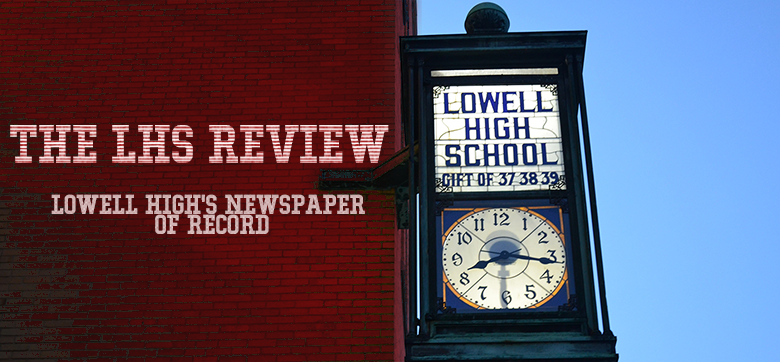Why is Voting Important?
November 1, 2020
With the upcoming presidential election, there are endless signs, ads, and voices telling people to get to the polls and vote. But why is voting so important? I interviewed people involved in the Lowell community to get some answers, and their unamity was not surprising. Every interviewee said that voting was important to them, but many different reasonings were given. These ideas include the importance of magnifying our voices, because it directly impacts our lives, government, and laws, and because who we vote for determines who will be representing us. An English teacher from LHS said, “WE LIVE IN A SOCIETY!” to relay that to be a contributing member of society, you must engage in civil acts such as voting. One UMASS Lowell freshman said that “Voting is important to me because it’s something that women had to fight for previously and it’s something many women don’t get to do in many countries so I vote to be like a voice of the people who couldn’t.”
The idea that we should vote inplace of those who can not is not a new concept. Many people make sure to get to the polls so they can fight not just for their own rights, but for the rights of others. There are many restrictions to who is allowed to vote, maybe more than most people realize. You can not vote if: you are a convicted felon (which felons, determined by state laws), under the age of 18, a permanent resident but not a citizen of the United States, if you are incarcerated, or if you have certain mental disabilities. This may seem reasonable to you, but look at it from this perspective: Felons, anyone under 18, some immigrants, and the mentally disabled have little to no say in laws that are implemented surrounding their existence. I urge you to consider whether that is something you believe is just or unjust.
A junior at UMASS Lowell, after being asked if she had ever thought that her vote wouldn’t matter, said, “I did have the mindset that my vote would not matter back when I was in highschool. I was going through a rough time then and found the world to be pretty hopeless. I thought my vote wouldn’t make a difference. Though, the first time I did vote after turning 18, I realized that was a rather dangerous way to think. The results from that vote came back and I was horrified to see how close the results of one important question had been. Certain people’s rights were on the line with the question and only a little over 60% of people wanted to protect those rights. I was one of that 60% and I feared what would have happened had not as many people who support the protections of these rights voted. It was then that it hit me how important my vote was. How important all our votes are.” The 66% she is referencing is relating to 66% of the collective votes of 97% of registered Massachusetts voters in a 2018 poll. This is a prime example of how close some votes can be. If a few thousand less people had not voted, rights would have been taken away from an entire minority group.
People questioning whether their vote matters is not the only issue that Americans have with our voting system. Just taking from the conducted interviews, here are some opinions and suggestions about United States polling system:
From a UML Freshman: “Yes it can definitely be improved. One option is to abolish the electoral college and have the elections based on popular vote instead, or at least have all states require the electoral college to vote solely based on what the popular vote is.”
From a UML Freshman: “Well I think the ranked choice voting system is a start in the right direction. And i really think senators and house reps should have term limits”
From a LHS Social Studies Teacher: “If there is truly a desire to get more people to vote, then voting day should be on a weekend when people have more time to vote. Also, it seems odd that we can do almost every other task, including some that require security, by phone yet we can’t vote by phone.”
From a UML Junior: “Various forms of voter suppression take place all the time. Until that’s dealt with, I’d say our voting system is deeply flawed.”
From a LHS English teacher “Some places require photo ID to vote, which limits access.Some have decreased the number of polling stations, which limits access. Some cannot tell formerly incarcerated individuals what they owe in fees, but those people cannot vote until they pay those fees.”
After hearing these voices from our community, I hope, if you are physically able, that you will take action and get to the polls on November 3rd, and vote for who you feel should be our next president.


